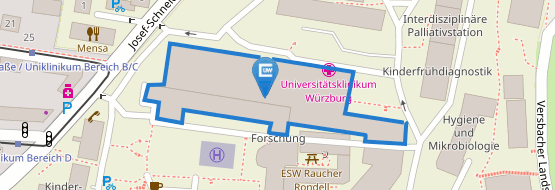A13 - Kleinschnitz
The role of the Kallikrein/Kinin-System in ischemic stroke
Summary
Thrombosis and inflammation are hallmarks of ischemic stroke. The kallikrein/kinin-system (KKS) represents an interface between thrombotic and inflammatory circuits and is critically involved in stroke development. We could show that high-molecular-weight kininogen (KNG), a central constituent of the KKS, fosters thrombus formation and inflammation and increases vascular permeability in mouse models of ischemic stroke (Langhauser et al., Blood 2012). Moreover, treatment with C1-inhibitor, an endogenous inhibitor of coagulation factor XII (FXII) and plasma-kallikrein (PK), reduced edema formation and inflammation after brain ischemia (Heydenreich et al., Stroke 2012). Similarly, blocking of FXIIa with rHA-infestin-4 resulted in a massive reduction of thrombus formation without increasing the risk of intracranial bleeding (Hagedorn et al., Circulation 2010). In a complimentary approach, we developed further the concept of “thrombo-inflammation” in models of ischemic stroke with a special focus on T cells (Kleinschnitz et al., Blood 2010; Blood 2013). Thrombo-inflammation describes the tight interplay between thrombotic and inflammatory pathways taking place at the ischemic neurovascular unit (reviewed in: Magnus et al., Curr Opin Neurol 2012).
To further analyze the pathophysiology role and drugability of the KKS in ischemic neurodegeneration we are currently using several transgenic mouse strains and new pharmacological inhibitors such as PK-deficient mice, specific antibodies directed against KNG or FXII and recombinant KNG-fragments. Moreover, in a translational approach we aim to verify the results regarding the function of the KKS in brain ischemia also in old and comorbid animals. Another part of the project addresses the relevant sources of thrombin (intrinsic vs extrinsic system, platelets) in the ischemic brain and the mechanisms of thrombin-induced blood brain barrier damage and inflammation.

